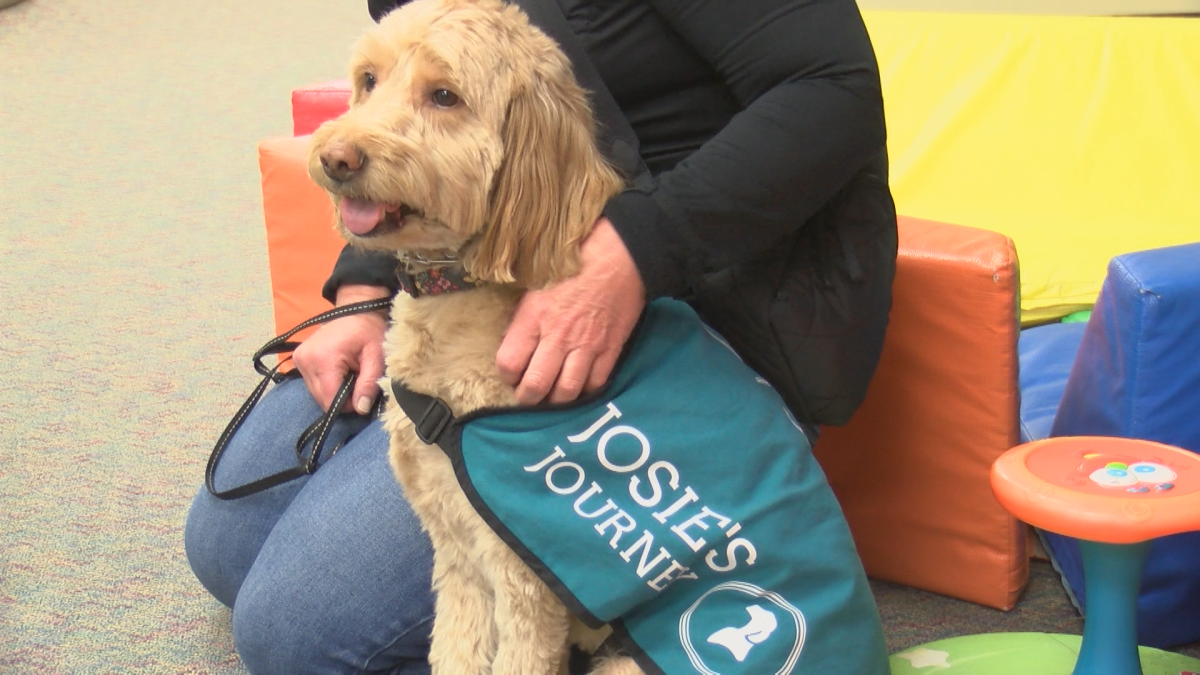Ithaca College first-year student Alise Polselli wanted an Emotional Support Animal (ESA) to accompany her on campus to help with her mental health.
However, the process of applying for approval has been a challenge, she said.
“The thing that made me really upset is that I was told it would only take a week.”
Alise began the application process for the ’24-’25 school year in August 2024. Approval requires a student to submit a recommendation from a therapist they have worked with for at least three months.

After working with a therapist for several months beginning in November, Alise received approvals from the Student Accessibility Office in March 2025. Susie, a two-year-old grey and white cat now accompanies Alise on campus.
“I feel way better when it comes to anxiety issues…I can just sit and pet her, and it usually makes me feel way calmer.”
The facts
In recent years, there has been an increase in the number of students seeking mental health help on campus, while the number of support animals on campus has decreased.
Counseling and Psychological Services (CAPS) does not write letters in support of emotional support animals (ESA). Recommendations must come from a medical or therapy provider outside of Ithaca College.
Ian Moore, director of Student Accessibility Services said the process is necessarily rigorous to ensure there is an actual need for the support animal.
“The main thing in our documentation requirement for a service animals is we want to make sure that the person has an honest therapeutic connection with a person who can provide some sort of therapeutic service,” Moore said.
For some students, the process is more seamless.

Cookie and Cream are guinea pigs and support animals — and roommates — accompanying first-year Psychology major Megan Rissolo. Her therapist and doctor back home in Delaware recommended she bring the guinea pigs before she left for college last fall. They felt the animals would benefit Megan’s emotional and mental health.
The animals help regulate her stress levels, while also creating a routine for her, she said, as they must be fed around a certain time each night.

In the fall of 2023, there were 90 registered emotional support animals on campus compared to fall of 2024, when there were 10.
Brenda Wickes works for the office of Student Accessibility Services. In an email statement, Wickes said a rigorous process is important when considering whether to approve the request for an emotional support animal on campus.
“An ESA is a huge responsibility and commitment for a student to take on,” Wickes said.
“It is not the panacea for all mental health concerns,” she added. “In addition, an ESA may not be an appropriate therapeutic intervention for a student based on their individual situation. The time, expense and responsibility of caring for another living creature should not be taken on lightly nor universally.”
Animal-assisted activities
Another program meant to help students with their mental health is Animal Assisted Activities.

Abby Juda is the Outreach Coordinator for AAA and coordinates a llama and two Cornell Companions dogs coming to visit campus before midterms and finals. Last semester, she conducted a survey asking how students felt before versus after visiting the llama.
She received 120 results, and they weren’t surprising.
Before visiting the llama, 25% of students were sad, 15% were happy, 31% were stressed, and 32% were tired.
After visiting the llama, fewer than 3% were sad, 68% were happy, fewer than 1% were stressed, and fewer than 2% were tired.
“I think it’s really important for people to have that sense of connection, that sense of stress lowering, and that opportunity,” Juda said.
“When I sit near the dogs, people just spend time talking about what their what their dog is like at home, what their cat is like at home, how much they miss them, how much their animals mean to them,” she added.
Megan and Alise have seen dramatic increases in their happiness since acquiring emotional support animals.
“They’ve helped me a lot because they are naturally anxious creatures and seeing their trust in me and seeing them become more comfortable with their own space helps me feel like I can calm down,” Megan said.
“They’re also very cuddly and warm and they take me out of my head a little bit,” she added.

Note: This story has been amended to correct Brenda Wickes’ title and clarify that letters of support for emotional support animals come from an outside health provider.



















Brian Petersen • May 19, 2025 at 1:43 pm
Correction:
“Brenda Wickes is the Assistant Director of Center for Counseling and Psychological Services (CAPS)”.
Brenda Wickes works for the office of Student Accessibility Services. Dr. Leah Murphy is, in fact, the Assistant Director of CAPS and was not interviewed for this article.
Also, for the record, CAPS at IC does not write letters in support of an ESA. Such a letter needs to come from a medical or therapy provider outside of Ithaca College. There are numerous reasons for this; too many to go into here.
Brian Petersen, Director of CAPS-IC
adviser • May 20, 2025 at 11:59 am
Brian – Thank you. I will correct the story and add a note at the bottom about the correction. Allison Frisch